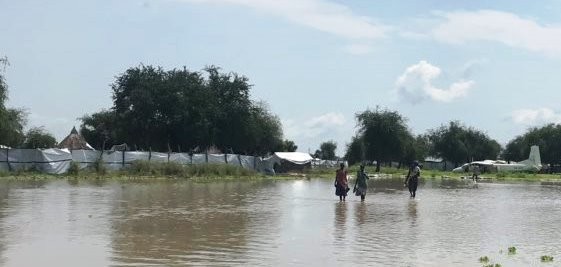A local official in South Sudan’s Bieh State said severe floods that hit Muotdit County since July last year have led to a deteriorating humanitarian situation in the area.
Speaking to Radio Tamazuj on the regular programme 'With the Commissioners' on Thursday, the county commissioner, Yuang Gatluak said the humanitarian situation is dire and livelihoods have been destroyed.
“There were no harvests in 2019 because floods destroyed crops. Cattle have been dying since August because of diseases and there are no places for grazing. The entire county is still flooded now and only Paluony area is accessible by air,” Gatluak said.
He added, “Also, since last week, fish in the streams have been dying. We do not know the cause. And the locals are consuming them, so we want the Fisheries and Livestock ministry officials to intervene.”
The commissioner pointed out that malaria and pneumonia cases are on the rise in the county, yet the existing health facilities within the county are lacking drugs and medical personnel.
Heavy floods have, since August last year, killed 44 people, including seven elderly persons, according to the local official.
He urged the national government and aid agencies in the country to intervene.
Close to 1 million people in many parts of South Sudan were directly affected by flooding that destroyed 73,000 metric tons of potential harvests and wiped out tens of thousands of cattle and goats on which people depend for survival.
In October 2019, the government of South Sudan declared a state of emergency in Bahr el Ghazal, Greater Upper Nile and Greater Equatoria because of the floods, calling for international assistance to be stepped up.




